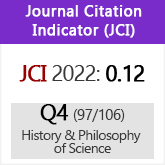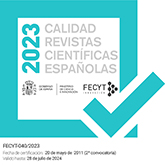Élie Metchnikoff, the First Modern Transhumanist?
DOI:
https://doi.org/10.3989/asclepio.2022.17Keywords:
Transhumanism, Élie Metchnikoff, Human Enhancement, Aging, MortalityAbstract
Élie Metchnikoff, winner of the Nobel Prize for Medicine in 1908 and Pasteur’s successor, was undoubtedly a very intellectually fertile man. His pioneering research in a wide variety of scientific areas, such as modern gerontology, thanatology, and immunology, confirms this. But is it also possible to consider him as the first modern transhumanist? The objective of this article is to study the appropriateness of attributing him such a title. To do so, we will analyze his life and work from a transhumanist point of view. We will first examine how Metchnikoff conceived the nature of our species; then we will outline how his project of human improvement might be presented; and finally, we will expose his interesting conception of human mortality. There are two incentives for this research: to rescue Metchnikoff’s thought under this novel perspective for Spanish-speaking readers, and the need to critically observe any proposal that aspires to overcome the limits of humanity.
Downloads
References
Bartley, Mary (1995), "Courtship and continued progress: Julian Huxley's studies on bird behavior", Journal of the History of Biology, 28, pp. 91-108. https://doi.org/10.1007/BF01061247
Bostrom, Nick (2005), "A History of Transhumanist Thought", Journal of Evolution and Technology, 14(1), pp. 1-25, [en línea], disponible en: https://www.jetpress.org/volume14/bostrom.html, [consultado el 21/05/2020].
Clark, Ronald (2011), J.B.S: The life and Work of J.B.S Haldane, London, Bloomsbury Reader.
De Kruif, Paul (1995), Microbe Hunters, New York, Harcourt Brace Jovanovich.
Esfandiary, Fereidoun M. (1970), Optimism One, New York, Norton.
Espericueta, José-Luis (2021), "La conceptualisation de la technique comme un prérequis transhumaniste : une réflexion à partir d'Ortega y Gasset". En : Damour, Franck (coord.), L'homme augmenté en Europe, Paris, Éditions Hermann, pp. 53-70.
Habermas, Jürgen (2002), El futuro de la naturaleza humana, Barcelona, Paidós.
Haldane, J.B.S. (1923), Daedalus; or, Science and the future, London, Kegan Paul Trench Trubner, & Co.
Huxley, Julian (1912), The Individual in the Animal Kingdom, Cambridge, Cambridge University Press. https://doi.org/10.5962/bhl.title.161324 PMid:17732755
Huxley, Julian (1941), The Uniqueness of Man, London, Chatto & Windus.
Huxley, Julian (1959), New Bottles for New Wine, London, Chatto & Windus.
Klerkx, Greg (2006), "The transhumanists as tribe". En: Miller, P. ; Wilsdon, J. (eds.), Better Humans?, London, Demos, pp. 59-66.
Metchnikoff, Élie (1900), "Sur les cytotoxines", Annales de l'Institut Pasteur : journal de microbiologie, Paris, 14 (6), pp. 369-377.
Metchnikoff, Élie (1901), "Sur la Flore du Corps Humain". En: Memoirs and proceedings of the Manchester Literary & Philosophical Society, Manchester, The Manchester Literary & Philosophical Society, pp. 1-38. https://doi.org/10.1136/bmj.1.2104.1027 PMid:20759584 PMCid:PMC2400860
Metchnikoff, Élie (1903), Études sur la nature humaine : essai de philosophie optimiste, Paris, Masson & Cie. https://doi.org/10.1515/9783112359426
Metchnikoff, Élie (1907), Essais optimistes, Paris, A. Maloine.
Metchnikoff, Élie (1910), The new hygiene: three lectures on the prevention of infectious diseases, London, William Heinemann.
Metchnikoff, Élie (1921), "Causerie de M. É. Metchnikoff". En : Mémoires publiés à l'occasion du jubilé de Élie Metchnikoff (16 mai 1915), Paris, Masson & Cie, pp. viii-xii.
Metchnikoff, Élie (2000), The Evolutionary Biology Papers of Elie Metchnikoff, Editado por H. Gourko, D. I. Williamson, y A. I. Tauber, Dordrecht, Springer Netherlands (Boston Studies in the Philosophy of Science).
Metchnikoff, Olga (1921), Life of Elie Metchnikoff, 1845-1916, Boston, Houghton Mifflin Company. https://doi.org/10.5962/bhl.title.22557
More, Max (2013), "The Philosophy of Transhumanism". En: More, Max; Vita-More, Natasha (eds.), The Transhumanist Reader: Classical and Contemporary Essays on the Science, Technology, and Philosophy of the Human Future, Malden, Wiley-Blackwell, pp. 3-17. https://doi.org/10.1002/9781118555927.ch1
Nietzsche, Friedrich (2012), Así habló Zaratustra, México, Tomo.
Petrov, Rem V.; Ulyankina, Tatyana I. (1996), "The Genius of E. E. Metchnikoff - Discoveries over the Centuries", Bioscience Reports, Kluwer Academic/Plenum Publishers, 16 (2), pp. 189-205. https://doi.org/10.1007/BF01206205 PMid:8790921
Platón (1985), "Protágoras". En: García, Carlos (trad.), Diálogos: Vol. I, Madrid, Gredos, pp. 489-589.
Platón (1987), "Gorgias". En: Calonge, Julio (trad.), Diálogos: Vol. II, Madrid, Gredos, pp. 23-145.
Platón (1988), "República". En: Eggers, Conrado (trad.), Diálogos: Vol. IV, Madrid, Gredos.
Platón (1999), "Leyes". En: Lisi, Francisco (trad.), Diálogos: Vol. IX, Madrid, Gredos.
Slosson, Edwin Emery (1914), Major prophets of today, Boston, Little, Brown, and Company.
Sloterdijk, Peter (2000), Normas para el parque humano, Madrid, Siruela.
Sorochan, Walter D. (1968), "Health concepts as a basis for orthobiosis", Journal of School Health, 38 (10), pp. 673-682 https://doi.org/10.1111/j.1746-1561.1968.tb04267.x PMid:4881919
Published
How to Cite
Issue
Section
License
Copyright (c) 2022 Consejo Superior de Investigaciones Científicas (CSIC)

This work is licensed under a Creative Commons Attribution 4.0 International License.
© CSIC. Manuscripts published in both the printed and online versions of this Journal are the property of Consejo Superior de Investigaciones Científicas, and quoting this source is a requirement for any partial or full reproduction.All contents of this electronic edition, except where otherwise noted, are distributed under a “Creative Commons Attribution 4.0 International” (CC BY 4.0) License. You may read here the basic information and the legal text of the license. The indication of the CC BY 4.0 License must be expressly stated in this way when necessary.
Self-archiving in repositories, personal webpages or similar, of any version other than the published by the Editor, is not allowed.















